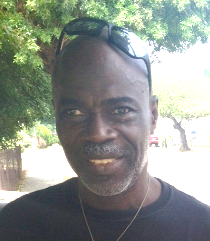More than 900 interpreters across seven Central California counties picketed this week to raise awareness about ongoing negotiations between the union for interpreters and the Administrative Office of the Courts, the management arm of the state judicial system, according to various media reports.
While gone more than a half-decade without a pay raise is noted, the core of the issue is another “outsourcing” cost-cutting plan. The idea is to use “centralized” remote video interpreting. This would often replace humans who make $35 per hour. They are paid by the state, but via the court system. The Santa Cruz Sentinel newspaper explained that “… video remote interpreting uses video cameras, computers and an interpreter in a remote location to translate rather than having a live interpreter in court.” The paper cited a union spokesperson explaining that “… there is concern from interpreters that the video service would violate the right to due process and compromise attorney client privilege.”
The talks continue today (Friday, Nov. 22) and there’s no speculation yet if other unions might join in any further actions. Read the Sentinel story here.

